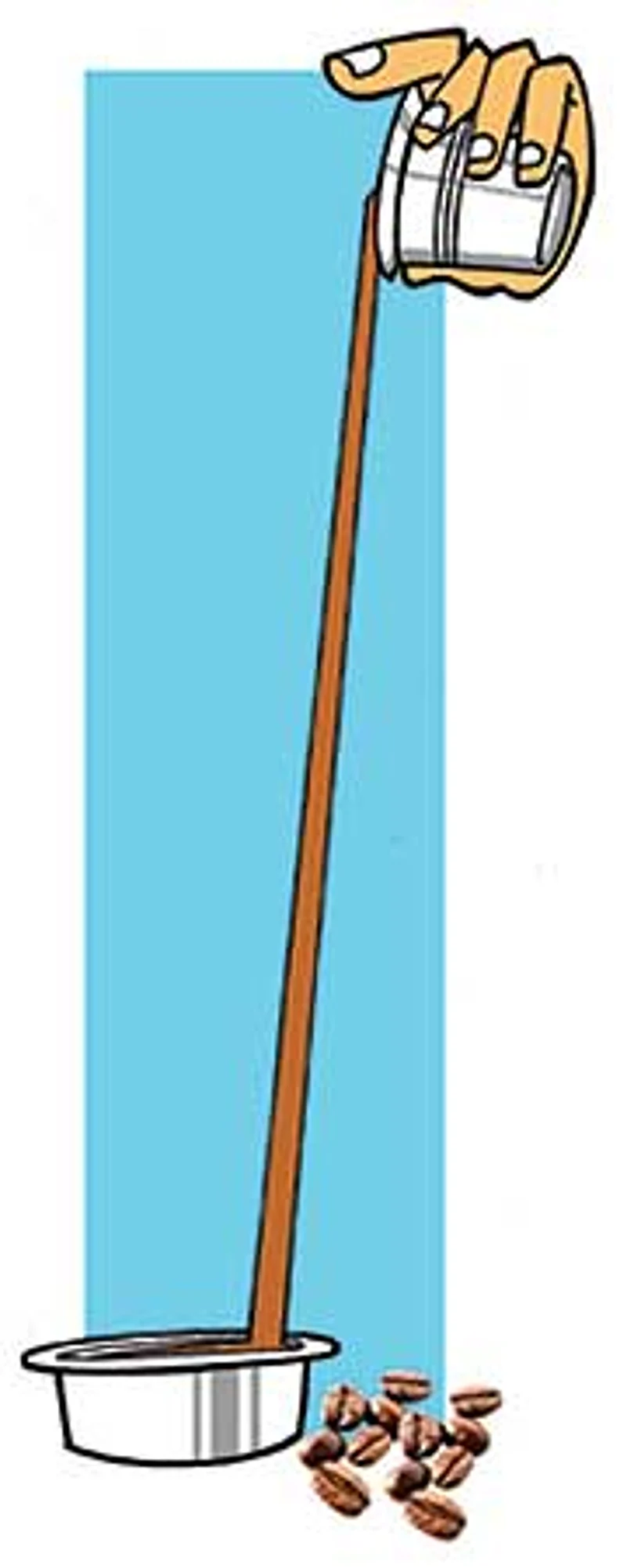
Minutes before he passed away many moons ago, my father asked for a pen and a piece of paper, scribbled a cryptic message ("BBC, P50, PA50, C34, X-5"), thrust it into my hands, mumbled 'Somesh', and breathed his last in a scene straight out of The Da Vinci Code.
In a way, the chit was the holy grail. BBC was short for Beere Betta Coffee, a tiny Mysore store named after an estate in the hills of Coorg. And the jumble of letters and numbers was his recipe for coffee the way his old friend mixed, roasted and powdered the beans. P50 was 50 per cent peaberry, PA50 was 50 per cent plantation 'A' and C34 was 34 per cent chicory. X-5 is a secret ingredient I can reveal only at the risk of being ostracised, but that is the depth of passion filter coffee invokes in South Indians. It's thicker than blood—and vatha kozhambu.
Friends and colleagues between the real Silicon Valley and the faux one, i.e. Bangalore, shake their heads in disbelief when I tell them this story. "Get outta here," an American client hollered at me at Tim Hortons, a New York coffee place the other day, as if Dan Brown had just strolled in.
Having propitiated the faceless gods at Starbucks, Coffee Day, Caribou, Barista, Peet's and other temples of caffeine—for Columbian, Ethiopian, Jamaican, Sumatran and other exotic brews; for 'double shot', 'skinny', 'breve', 'grande' and 'au lait'—the epicureans can't believe that docile South Indians can make such a fuss about kaapi.
But hey, it's a free world. You're free to choose your poison—and fiddle around with plastic lids, straws, stirrers, cup jackets, napkins, spoons, and tear your hair over whether to order a tall, grande or venti. As for us, we like it "black as the devil, hot as hell" (Talleyrand) and straight from a stainless steel tumbler, after we have spun a few yards between the lota and battlu.
There are plenty of sociological reasons, I am sure, for this fixation. For one, coffee was first planted by a Sufi in the South. (Surely, it has made us more secular than the Northies? Just kidding). And for another, tea is considered a declasse, poor man's drink in many Brahmin homes. But after seeing young people agonising over cappuccinos, espressos, frappes, lattes and mochas, I feel if there is one overarching reason why filter coffee courses through South Indian veins, it's probably its relative simplicity, like that of its consumers.
There is a possibly apocryphal story of R.K. Narayan's who, like Orwell on tea, wrote on how to make a perfect cup of coffee in The Vendor of Sweets. RKN is at the coffee counter of a cafeteria in the US when he is asked: "Black or white?" "Neither," replies Narayan. "I want it brown which ought to be the colour of honest coffee. That's how we make it in South India where devotees of perfection in coffee assemble from all over the world." Brown to golden brown is South Indian filter coffee's proper hue unless you are drinking the finger bowl slop that five-star hotels pass off as the real thing.
Every Sunday morning, before his oil bath, my father would sit down to lovingly roast the beans that an uncle who worked at the estates of Ponnachi would send, over coal. That done, he would fix the grinder to a stool and hand-grind the beans. The powder would last a week. When she keeps saying "Why go out, when I can make it at home" in Goodness Gracious Me, Nina Wadia could well have been addressing us.
Strips of discarded dhotis initially served as the filter for the coffee, till prosperity—and muslin and brass and stainless steel filters—arrived. But neither the march of time nor technology has managed to overwhelm the aroma of fresh decoction wafting from our kitchens.
Munching a couple of kodu bales while solving the crossword, with jazz in the background and a cup of filter coffee, has been my idea of happiness for years although I rarely get to experience it. These days, my health-conscious mother reads from news reports to lure me away. Type "coffee+study" in Google, and a thousand "studies" warn that it can extend your life, shrink your breast size, or reduce your pregnancy chances. Since only one of those health warnings concern me, I point to my Doberman (vegetarian), who happily eats curd rice and drinks strong South Indian filter coffee now and then like the rest of us, and is a happy sonofabitch at 85 dog years. The only thing he doesn't do is read The Hindu. If it works for him, it sure works for me.






















